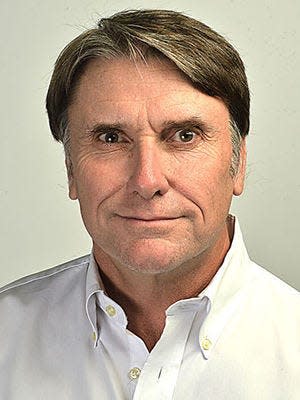Doctors face mountain of obstacles that make profession less appealing, but Meritus addresses shortage
In 2017, Hancock physician Matt Hahn wrote the book “Distracted,” a chronicle of the soul-crushing regulatory and insurance-mandated minutia faced by the health care profession that have nothing to do with health care.
As with everything, human care is being reduced to a numbers game, in a world where we believe that all life’s questions can be answered with math. These equations dictate how much (or, really, how little) time a doctor can spend with a patient, and reduces treatment — and payment for that treatment — to formulaic computer forms and busy work that had little to do with patient care
Hahn’s prescient work explains an interesting and somewhat puzzling phenomenon: Two years into the COVID-19 pandemic, the number of doctors considering retirement or other lines of work is startlingly high — but no higher than it was before the pandemic, which, we were told, created so much stress, fatigue and burnout in the medical community.

A layman’s assessment might be this: As troubling, frantic and heartbreaking as treatment of COVID has been, at least physicians were able to do the work they were born to do, which is to say treating patients, not pushing paper.
The American Medical Association projects the nation will be short between 38,000 and 124,000 doctors a decade from now, and between a third and a half of those could be the primary physicians that are basically community gateways to good health.
America has in the neighborhood of 1 million licensed physicians, a number that at this point is still growing, even as it is still inadequate to meet the current need. AMA surveys indicate one doctor in five is considering leaving their current practice in the next two years, and one in three is considering a reduction of hours.
Further, the U.S. population is expected to grow 7.4% in the next decade, and two-thirds of that growth will be among people who are 65 and older, and in need of more care. Physicians are aging too; a decade from now a third of primary care providers are themselves of retirement age, and a source of worry to patients who don’t want to lose, in many cases, the only provider they have ever known.
Rural locations are particularly at risk of inadequate care, and shrinking practices mean longer drives; rather than drive to the cities, older patients tend to forgo care altogether.
Into this is stepping Meritus Health, which has announced promising plans for a medical school of its own where, it is hoped, a percentage of those educated locally will stay in the area to practice.
It seems a bold move in a time in need of bold moves. We’re familiar with universities that have their own hospitals, but less so hospitals that have their own universities.
Maulik Joshi, president and CEO of Meritus Health, said the local hospital is feeling the same physician shortages as are evident nationwide, with a need for 52 more primary and specialist physicians.
While it falls on Meritus to build the school, it will fall on the nation as a whole to make medical care an attractive enough profession so as to fill the school’s seats. Several things stand in the way of that, not the least of which is financial.
The average physician salary is $250,000, which is not far off them the average debt students rack up to achieve their education. To break that down in relatable terms, imagine if you were offered a job paying $50,000, but the cost of accepting that job was $50,000 as well. Would you take it?
College tuition, which along with opioids may well be the crime of the century, is just a legalized form of indentured servitude — universities and financiers have figured out a way to take a sizable cut out of young people’s earnings for decades after graduation. Until doctors can be paid what they’re worth without staggering financial encumbrances, good luck doing anything about the physician shortage.
The financial aspect has also put the squeeze on primary care, since specialists can earn substantially more. To address this, the AMA, interestingly, has tried to emphasize the joy and satisfaction that comes with being a community provider of primary care. That’s great, except it brings us right back to the rote (and unjoyful) administrative and insurance-company-dictated requirements outlined by Dr. Hahn.
A true physician is an artist, not a box-checker. They should be the heroes of a community, much the way airline pilots were the artists and heroes of the skies in the days before autopilot.
The odds of fine-tuning the Affordable Care Act’s regulatory aspects in this national political climate seem slim, while the odds of battling the insurance lobby to at least a draw seem to be nonexistent. So credit Meritus for, at the local level, taking control of what it can.
Tim Rowland is a Herald-Mail columnist.
This article originally appeared on The Herald-Mail: Obstacles inhibit doctors, but Meritus addresses one issue
